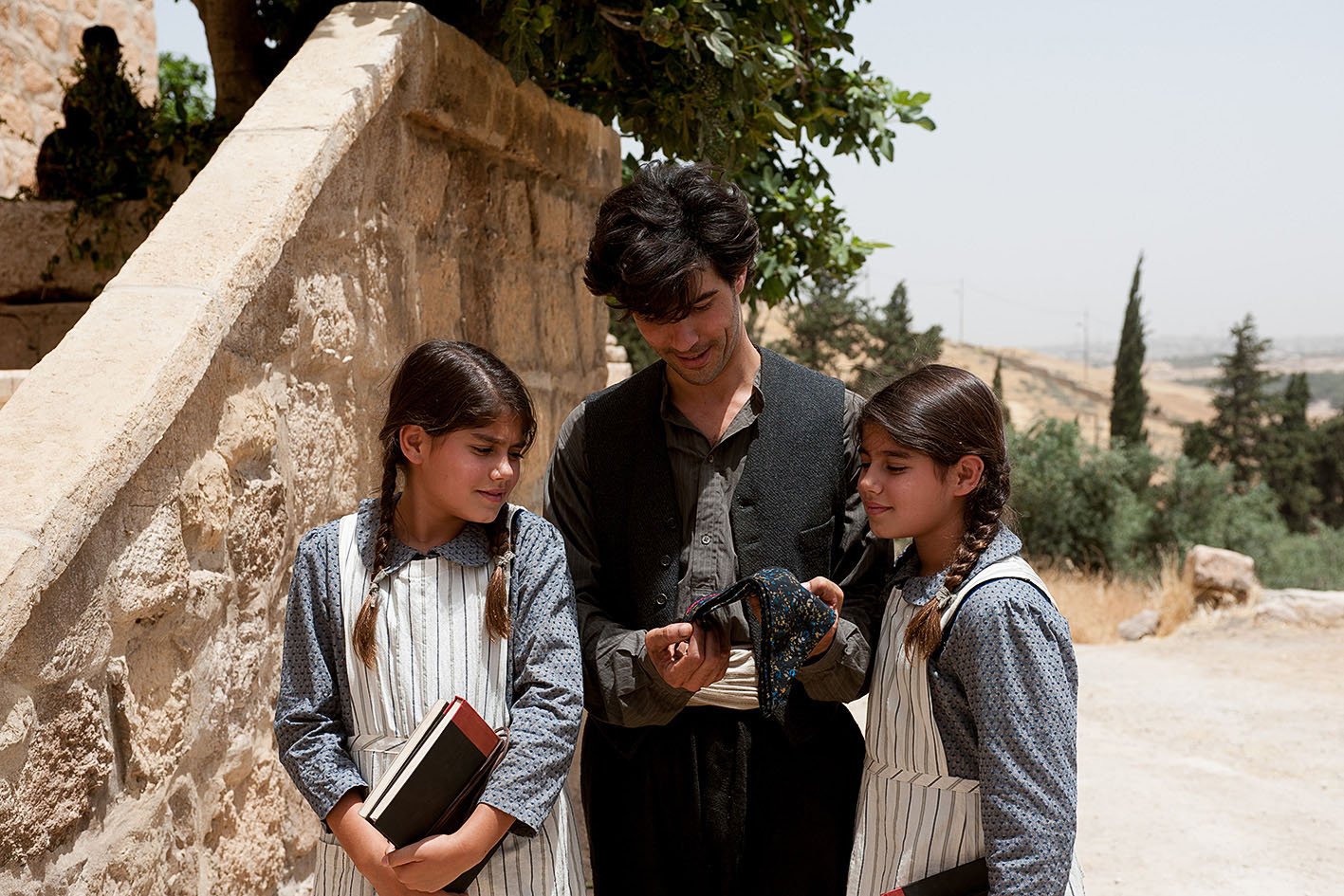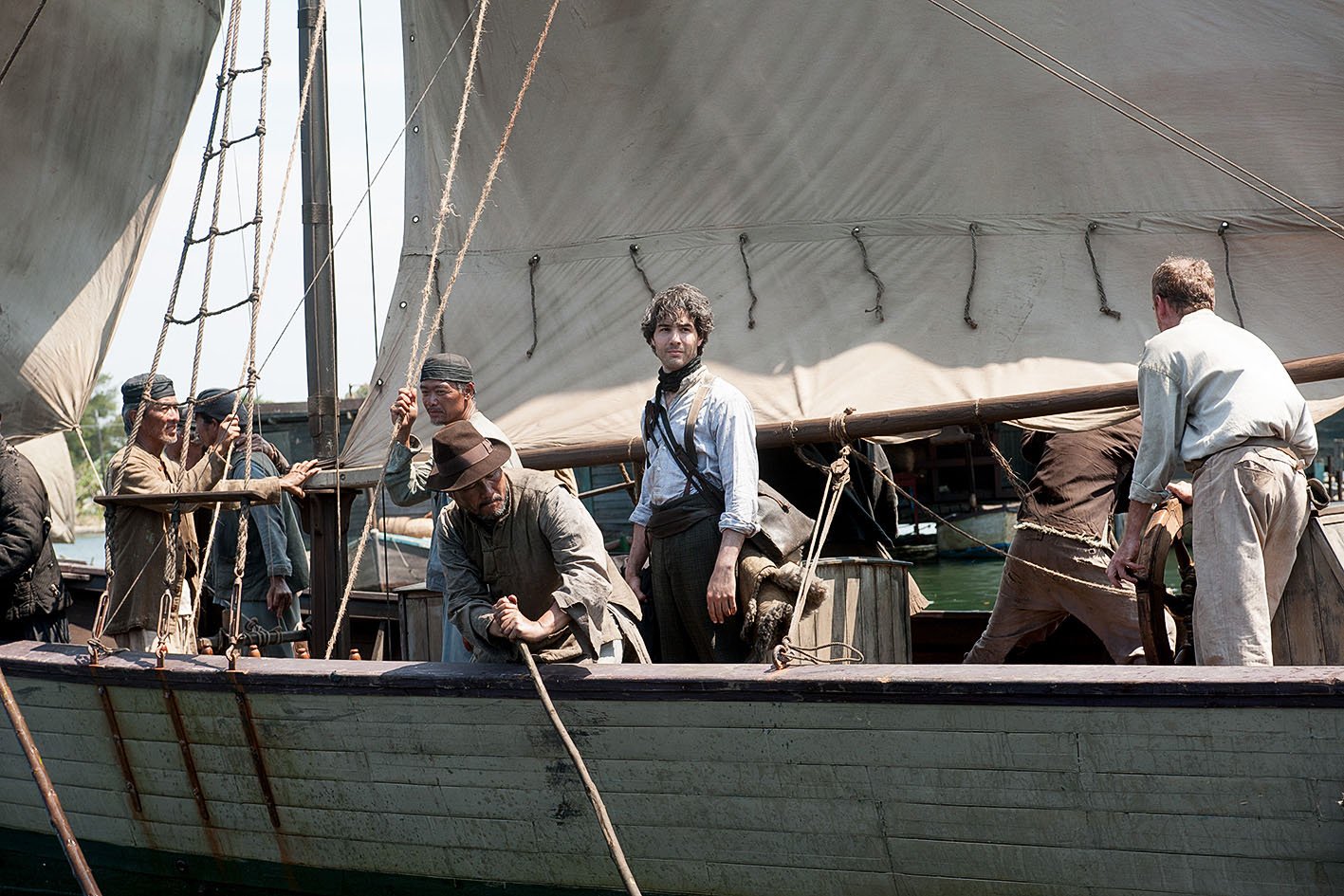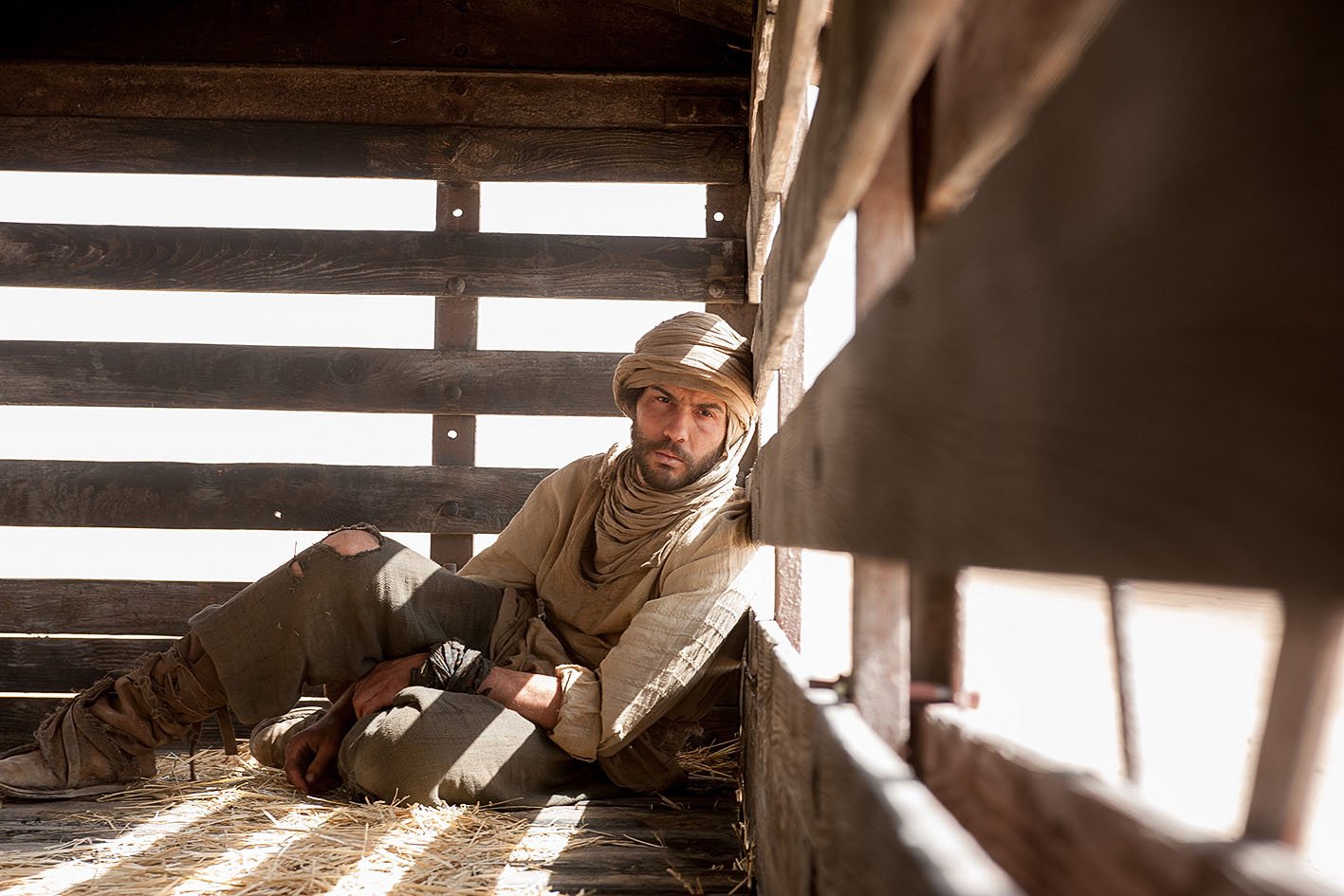




The Cut
D**L
A cinematic masterpiece that invites multiple viewings
By now Fatih Akin is well-established as a transnational auteur who has produced award-winning “serious” dramas that highlight the complexities of life for a new generation of “Turkish Germans” born in Germany, as well as light-hearted comedies of “glocalization.” But his 2014 The Cut, the final installment in his “Love, Death, and the Devil” trilogy, takes his art to a new level in a number of ways. It is his first “historical” drama, set initially in 1914 Turkey; it introduces a further historicizing element by making the main character mute, so that the resulting work is a hybrid silent film; and it is his most geographically wide-ranging film to date, breaking out of the Euro-Mediterranean region for the first time.The Cut is based on meticulous research of the Armenian genocide; it had the enthusiastic participation of many Armenians and Armenian Americans (notably Scorsese’s scriptwriter, Mardik Martin). But this is not a film "about" the Armenian genocide, the direct portrayal of which occupies less than half the film (the remainder is devoted to Nazaret Manoogian's search for his twin daughters). It is this "second half" of the film that has left some viewers complaining about a lack of plot. But for the attentive viewer, there are many treasures here.More than a “mere” historical drama, The Cut is both a morality play of sorts and an homage to Akin’s cinematic inspirations from Chaplin to John Ford. The obvious moral content concerns the genocide itself, and the film offers multiple please for understanding and forgiveness rather than revenge; in one scene, Nazaret stops with his hand raised to literally throw stones at the now-defeated Ottomans, a clear reference to his own namesake's injunction not to "cast the first stone." But film's portrayal of evil (and the devil and theodicy and proper human action) is not confined to the obvious or the horrendous; in this film, small choices end up making all the difference. Watch it carefully and you'll see! The cinematography is beautiful and comes through even on the small screen.I have not watched the original English version, but instead the Armenian-dubbed version with English subtitles; for me the range of languages in the film is part of its attraction (languages I could identify included Turkish, Arabic, Spanish, and finally, indeed, some very American English).
J**N
A brilliant production and a great cast of actors in particular ...
This is a real traumatic movie from start to finish........The tragedy that befell on the Ottoman Armenians as the victims of the first Genocide of the 20th century can not be far from the truth in this movie. A brilliant production and a great cast of actors in particular Tahar Rahim's portrayal of a father looking for his lost two daughters ......was sensational!!! You could not immerse yourself in this movie without shedding a few drops of tears.A must for every movie lover interested in a war drama. Well done.
A**
Accurate depiction of real historical events
I think this film does a much better job than other films about the Armenian Genocide to depict the real horrors, trauma, and tragedy that people faced during this awful part of history
M**N
This makes the Cut
This is one of the best movies on the Armenian Genocide. You really understand what the roadlabor work crews were really like, labor death camps.I just found it odd that the missing daughter was later found in an American western state. I didn't think that the Armenians were settled there.
R**S
What a great surprise
Movie was much better than I was expecting.
N**R
I feel so bad for Fatih Akin
I feel so bad for Fatih Akin. I hated this movie, and I've loved everything else he's done. So the reason I feel bad for him is that the movie's subject is obviously one he feels deeply about and wants to communicate about in an epic way...and he isn't able to. It must be very frustrating. But it makes me feel that he's a more human character, so even if I didn't like the movie I think I learned something interesting about how I react to movies...part of it has to do with the story that's in the movie, and part of it is the story and the vision of the director.
A**N
A groundbreaking film.
Beautifully acted and directed film. Some critics have been too harsh in part because they came to this film with preconceptions based upon Akin's previous output.
H**H
excellent movie
Very sad but worth seeing.
T**Y
One Mans fate in the Armenian Genocide
Tahar Rahim (‘A Prophet’) stars as Nazarat an Armenian artisan in the town of Mardin. World War I is raging and the Ottoman Turks have thrown in their lot with the forces of Germany and her allies. In Turkey a decision is made to do something about the Christian Armenians. Nazarat is rounded up and forced to work as slave labour – leaving his wife and twin daughters alone to their fate.What befalls him is horrific and what befell the Armenians was a war crime and a crime against humanity. In the aftermath of his travails Nazarat hears that his daughters have survived the blood bath, he then sets out to find them and the majority of the film is taken up with his search.Now this is a fairly good effort, it is a bit shameless at tugging on the heart strings though. It was a wide European co-production and that is reflected in the languages being used. The main language though is English, which is used by most of the players here. That may be why it has faced criticism of some of the acting. That criticism is that some of it was a bit hammy or wooden. It is harder to act in a non native tongue so a lot of the nuances are lost.Rahim is as ever excellent and believable and as a central character to the film he manages to hold it all together very well. There are some plot holes and I could not find if this was based on an actual real story. However, it is fairly engaging and with a run time of around two hours managed to keep me gripped for the most part hence my rating.
M**R
A Cut Above Most Movies
We all forget about the Armenian genocide, probably because the Turks still haven't held up their hand. This story is a search for his family through the ravages of the First World War and its aftermath. Well worth watching.
M**K
"Möge Deine Reise fließen wie Wasser"
Für diesen Film sollte man sich tief in seinen Sessel fallen und ihn in innerer und äußerer Ruhe auf sich wirken, sich entführen lassen. Dann entfaltet er eine Wirkung wie Geschichten aus "Tausendundeiner Nacht".Nazaret ist Armenier und Christ. Mit seiner Familie lebt er als Schmied 1915 in Mardin. Durch den Krieg wird er von seiner Familie getrennt. Als dieser zu Ende ist, begibt er sich auf die Suche nach seinen Verwandten, die ihn über den Libanon nach Kuba, Florida nach Minneapolis und schließlich North Dakota führt.In monumentalen Bildern, als handle es sich um bewegte Fotografien oder Bühnenbilder in hellen, blassen Farben, erzählt Fatih Akin mit langen poetischen Einstellungen die Odyssee seines Protagonisten von 1915 bis 1923. Zusammen mit der Musik ergibt das eine intensiv eindringliche, elegisch-kraftvolle Atmosphäre, die meditativen Charakter annimmt und in über zwei Stunden Laufzeit keine Länge entstehen lässt. Der Film ist dabei nicht beschönigend, was die Strapazen und grausigen Erlebnisse angeht, sodass er zum Teil schwer zu ertragende Sequenzen in Flüchtlingscamps und von Gewalt enthält."The Cut" ist ein besonderer Film, ganz anders als "Gegen die Wand" und "Auf der anderen Seite", die Akin als Teile 1 und 2 seiner Trilogie "Liebe, Tod und Teufel" versteht: Er ist ein Epos, ja- und ein klassischen Kino- und Filmerlebnis, im positiven Sinne "altmodisch", das einen am Ende ein wenig betäubt und um ein Vielfaches bereichert entlässt.
T**S
Besonderer Film
Ein besonderer und wichtiger Film. Leider kaum in den Kinos, da wohl ein politischer Konflikt befürchtet wurde. Als DVD daher umso wichtiger. Kaufen und mit Freunden und Familie schauen. Ein Schandfleck türkischer Geschichte der nie vergessen werden wird. Da kann noch so oft geleugnet werden. Wahrheit ist Wahrheit. Respekt an den Regisseur mit türkischer Herkunft. Sehr mutig.
A**S
Ergreifendes Epos
Ein grandioses Meisterwerk, das sich nicht in Schwarzweißmalerei verliert. Fatih Akin behandelt ein heikles Thema aus der Sicht eines Zeitzeugen,mit viel Einfühlungsvermögen, ohne zu polarisieren. Die Gestaltung mit Untertitel stört keineswegs, im Gegenteil der Klang der verschiedenen Sprachen zeigt die multiethnische Lage des osmanischen Reiches. Dieser Film lebt auch von unausgesprochenen Dialogen, und Andeutungen, so das er den Zuseher zum Nachdenken anregt, so er dies zulässt. Es ist mir schleierhaft wie man hier nur einen Stern abgeben kann.
Trustpilot
1 week ago
3 weeks ago